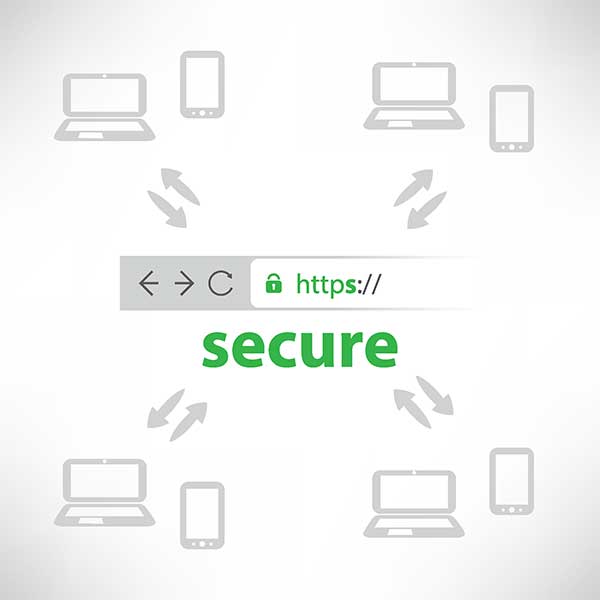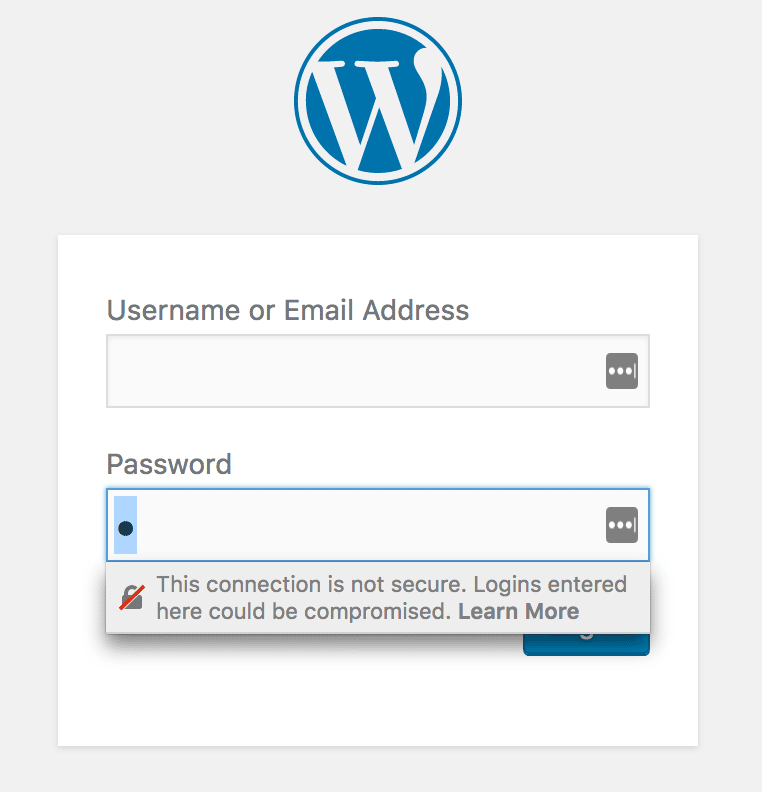If you own a website for your small business, you’ve probably heard the terms “HTTPS” and “SSL” before. While these acronyms may seem like they’re only important for web developers or techies, they’re actual crucial components of any website — regardless of focus or industry.
 Both HTTPS and SSL are in place to ensure your website is trustworthy and responsible. Through approving your webpage, your audience knows that they are more or less protected when browsing or buying from your page.
Both HTTPS and SSL are in place to ensure your website is trustworthy and responsible. Through approving your webpage, your audience knows that they are more or less protected when browsing or buying from your page.
If you’re not familiar with HTTPS and SSL, you’ll want to brush up on what they mean and what they include. Let’s begin by taking a look at what HTTPS and SSL stand for.
What is HTTPS?
HTTPS stands for Hypertext Transfer Protocol Secure. HTTPS is the secure version of HTTP, meaning that the communication between your visitor and your website is secure and encrypted.
There are a number of benefits to having an HTTPS website over a standard HTTP, especially if your visitor is frequently entering detailed or sensitive information when they visit your site. If your customer needs to enter credit card information or other personal information, you’ll want to have an HTTPS page.
Having an HTTPS shows your visitor that you’re a valid company, so they don’t need to be worried about entering credit card information to make a purchase online. The information they do enter will become encrypted, so it cannot be stolen or intercepted.
Your HTTPS website can establish a stronger level of trust with your customer. When they know that their information is protected, they’ll be more likely to purchase from your company over your competition.
What is SSL?
SSL, which stands for Secure Socket Layer, works with your HTTPS website to protect your customer’s information and privacy. SSL, which may also be called TLS, or Transport Layer Security, is the encryption communication that your HTTPS website will use to encrypt the information a customer or client puts into your website.
Both SSL and TLS use two different “keys” to encrypt the information put into the website. When someone enters their credit card information, they will encrypt those details so someone attempting to hack the page cannot access them. Only the individual with the right “key” — typically the business owner — will be able to decode the information and process the purchase.
To have SSL on your website, you would purchase what is known as an “SSL certificate.” Essentially, this certificate is a unique encryption process that will only be used for your website. This ensures that others with SSL on their own page cannot crack your code or access your client’s information.
Why are HTTPS and SSL Important?
Not only does HTTPS and a Secure Socket Layer certificate help protect your customers and clients and improve their trust in your company, they are also important for Google. As a way to improve security and ensure they’re only pushing users to valid and reliable websites, Google is encouraging all websites to become HTTPS.
Google Moves Toward a More Secure Web
Google wants each website to have a SSL certificate and HTTPS website for three main reasons. First, it helps authenticate the website. Getting a HTTPS website with SSL takes an approval process, so not everyone can setup a secured page and start collecting credit card information. The secured website can also help customers avoid scams or duplicate websites.
The secured website also ensures that the data you enter is going to the right individual. Even if you’re not making a purchase, you don’t want your name and contact information to fall into the wrong hands. A secured website will ensure you will be the one receiving the information from anyone filling out your online form — not a hacker.
To help users browse the web safely, Chrome indicates connection security with an icon in the address bar. Eventually, the Chrome browser will show a Not Secure warning for all pages served over HTTP, regardless of whether or not the page contains sensitive input fields.
The Firefox browser will display a grey lock icon with a red strike-through in the address bar, when a login page you’re viewing does not have a secure connection. This is to inform you that if you enter your password it could be stolen by eavesdroppers and attackers.
Learn more in this post from Godaddy about Google Chrome’s Not Secure Warning.
WordPress Moving Toward SSL
Not only are search engines starting to require a SSL certificate for better search ranking results, WordPress is also moving toward SSL. WordPress is the platform our websites are built on. WordPress has noted that we’re at a turning point.
If you have recently logged into your WordPress website admin and your website doesn’t have a SSL Certificate, depending on which browser you are using, you may be seeing a warning message that says something similar to “This connection is not secure. Logins entered here could be compromised.”

The last reason for the HTTPS push is the encryption. With the number of hackers on the web, both you and your customer may worry about who is intercepting the content and information you’re sending back and forth. When your information is encrypted, someone who does intercept the message is unable to read it.
Getting your SSL Certificate
Even if you’re not a bank, financial institute, or ecommerce site, you’ll want to take the time to get an encryption certificate for your page. Not only will this improve your trust with your audience, it can also help you rank higher on a search engine search.
Various search engines give priority to secured websites because they know they’re recommending a valid and trusted company or website. If all of your competitors are using a secured website and you’re not, you’ll struggle to get your name to appear on the top of a search engine results page. This can make it incredibly difficult for you to attract new leads and get new customers.
If you only have one domain URL, you only need to get a single domain certificate. Multi domain certificates are available for websites with multiple domain names or multiple hosts. A multi domain certificate may also be called a Universal Communication Certificate. You can also purchase a wildcard certificate, which allows you to secure sub-domains related to your main domain.
As more and more websites move towards being secured, you want to ensure you’re taking the necessary steps to protect your page and customers as well.
We’re here to help get your site on a secure path. Not sure if your website is secure? Follow Google Chrome’s steps below:
- Open a page in Chrome on your computer.
- To check a site’s security, to the left of the web address, look at the security status:
Secure
Info or Not secure
Not secure or Dangerous
Let us know if you’re ready to get the “green padlock” on your site, contact us today!



